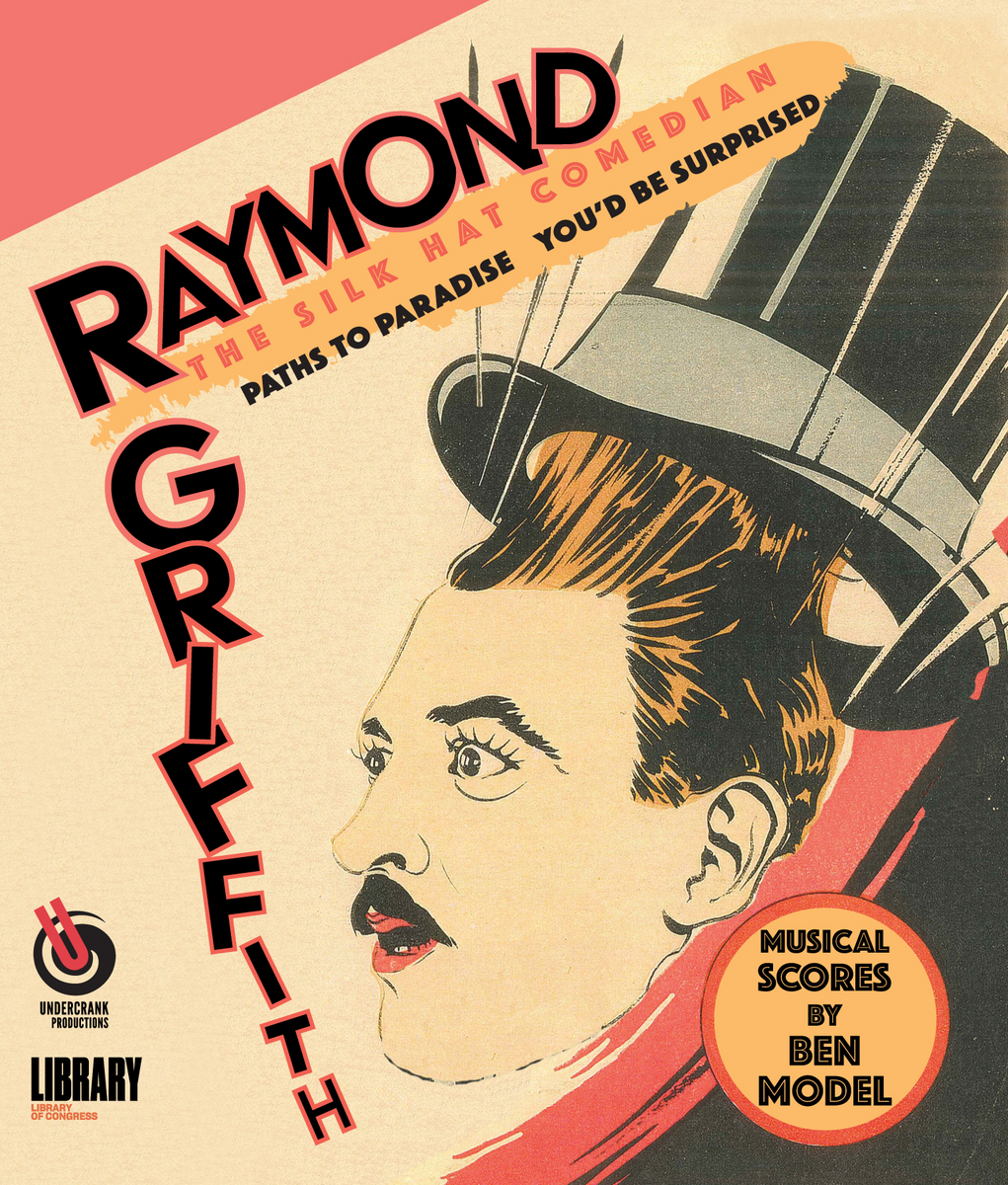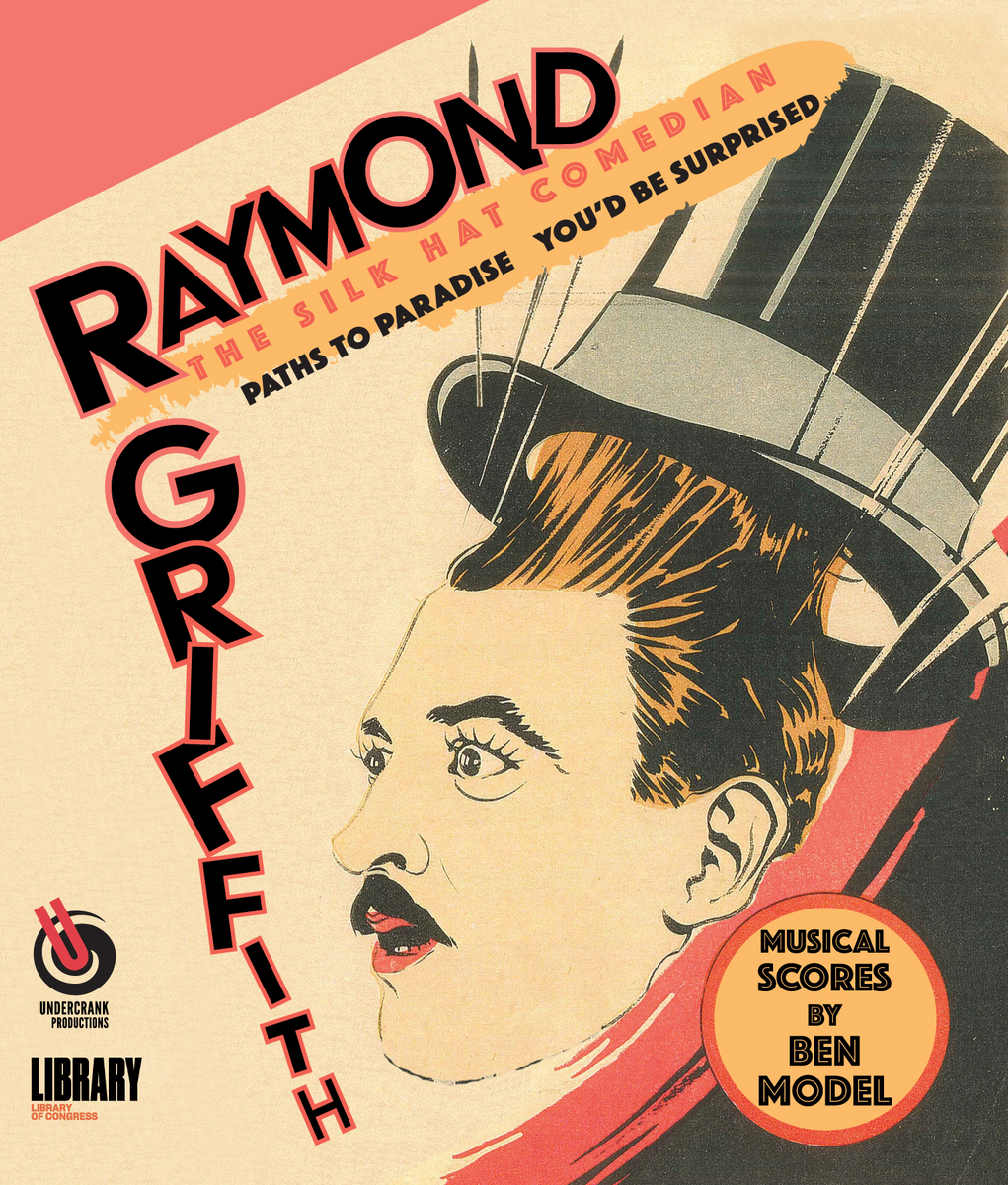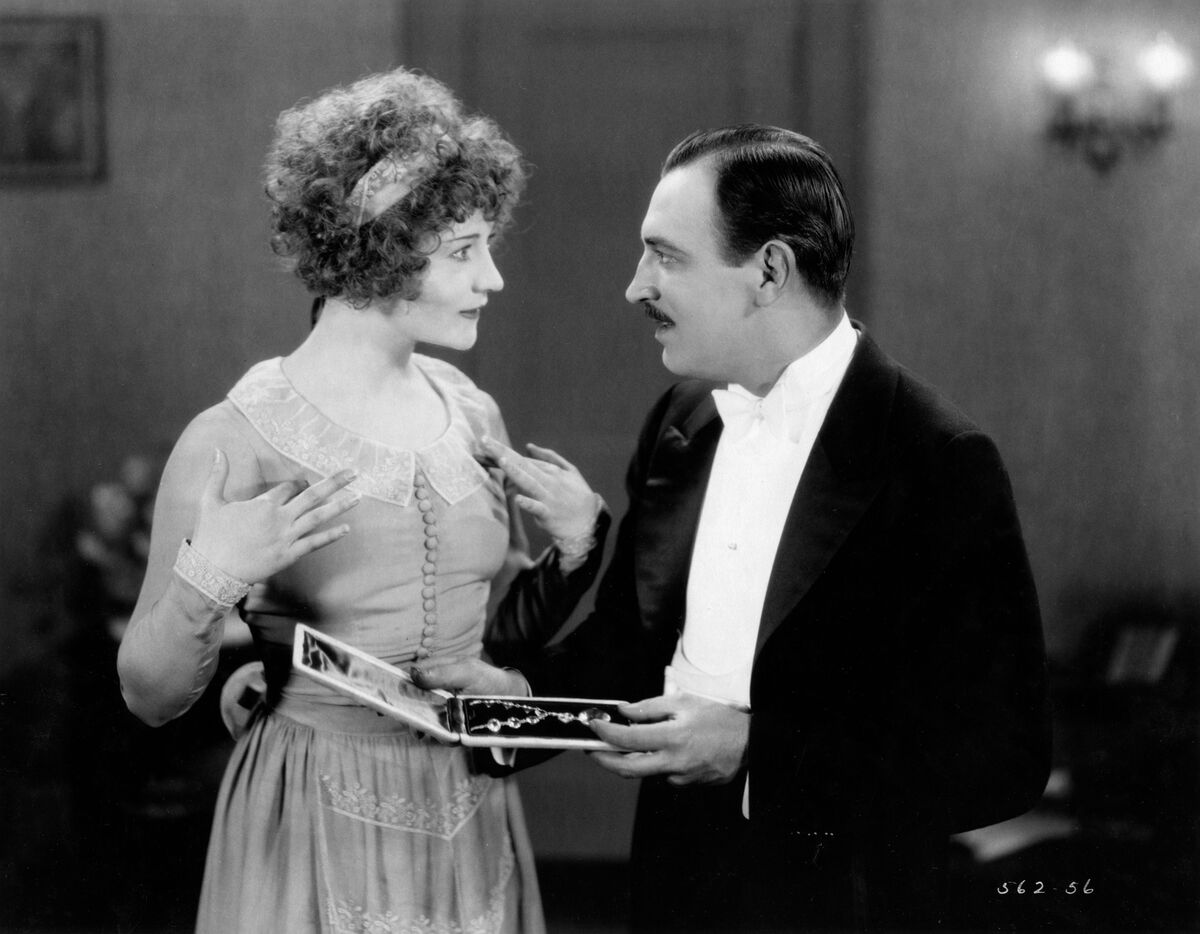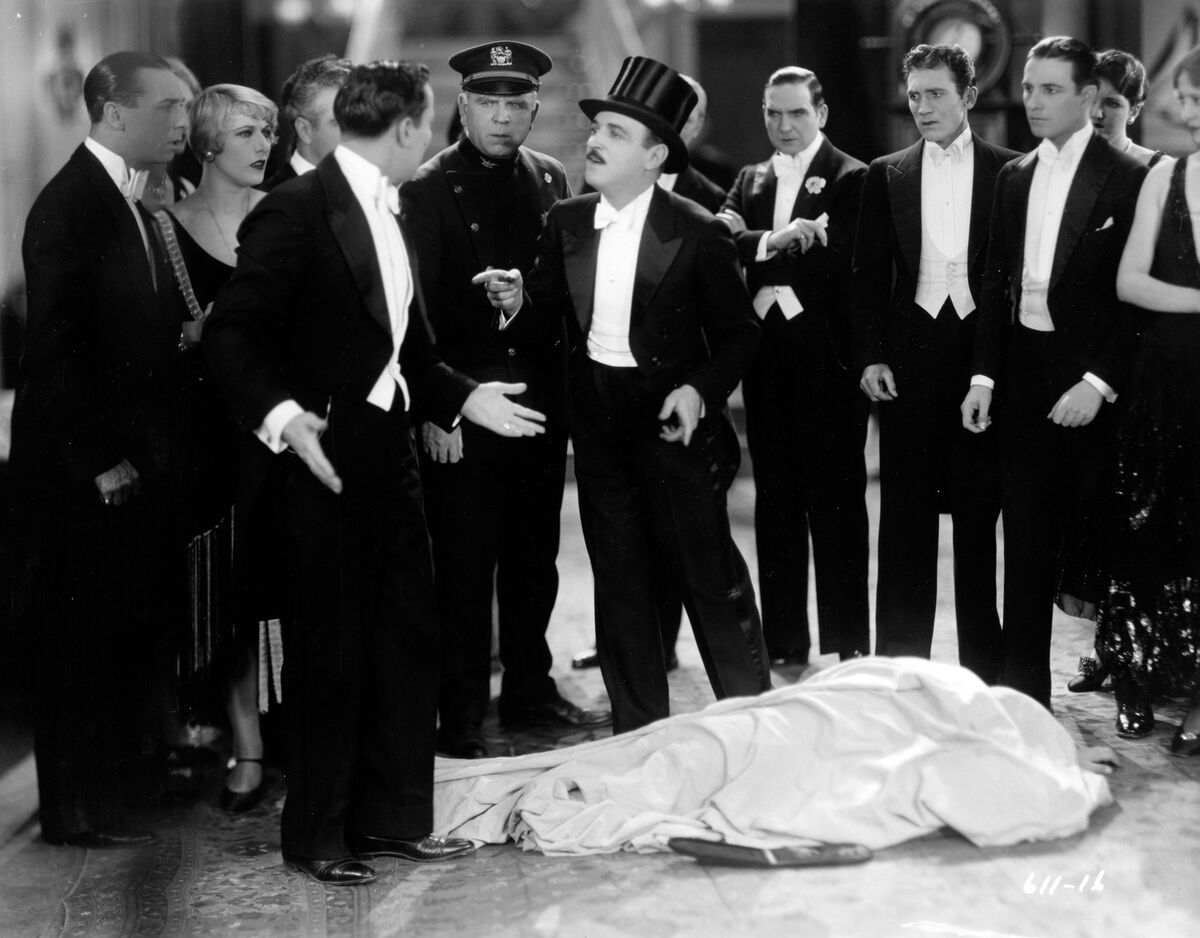
Raymond Griffith: The Silk Hat Comedian
directed by Clarence Badger, Arthur Rosson
starring Raymond Griffith, Betty Compson, Richard Arlen
with musical scores by Ben Model
Undercrank Productions / The Library of Congress
Charlie Chaplin had his bowler, Buster Keaton sported a pork pie, and Raymond Griffith was the “silk hat comedian.” Griffith offset his small physical stature with a tall, silk top hat, which he routinely wore with a fine tuxedo. Griffith’s persona is a bit of a dandy, decked in formal wear complete with top hat at all hours of the day with part of the joke being that no one seems to notice or care. His dapper hustler schtick works, because he is actually charming and the audiences want him to prevail regardless of which side of the law he is working on. Griffith was a major player in 1920s Hollywood but has been utterly forgotten today, even among silent film fans. Undercrank Productions is doing their part to restore his good name with a pair of his Paramount features: Paths to Paradise and You’d Be Surprised on Blu-ray with Raymond Griffith: The Silk Hat Comedian.

Paths to Paradise features Griffith and Betty Compson as a dueling pair of con artists who are forced into an uneasy alliance in order to steal a valuable necklace from an industrialist on the night before his daughter’s wedding. The pair’s paths first crossed a few days before, when the never-named “dude from Duluth” ran a con on Molly’s (Betty Compson) gang running a tourist scam in San Francisco where people would pay cab drivers to take them to see the seedy side of the city. Molly’s gang would stage the bar as an old seaman’s haunt or Chinese opium den, depending on the rubes’ preference. Into their opium den set come Griffith and his accomplice posing as undercover cops running a sting operation and accepting the night’s bribe to look the other way. It is only when Griffith leaves his gas meter inspector’s badge behind does Molly realize she’s been had. The pair meet later and both devise their own plans to get their hands on the valuable wedding gift. Much of the plot involves the pair trying to find the necklace and avoid detection from the police assigned to watch the house. Through a bit of (intentional) mistaken identity, the industrialist thinks Griffith is the private detective hired to guard the jewels, with Compson working undercover as a maid.
Once the jewels are secured, their cover gets blown and the Dude and Molly are in a wild car chase from the police as they attempt to flee to Mexico from San Francisco via the Pacific Coast Highway. This car chase is epic on the scale of The Blues Brothers, with motorcycle divisions from every city down the coast of California joining in. Not only does the twisty road present a challenge for the high-speed chase, but also the distance ,which requires the pair to steal fuel off a tanker truck going full speed down the highway. The outlaws make it to Mexico free from the clutches of the police.

Arriving across the Mexican border, they have a change of heart and decide to try to return to San Francisco and get the necklace back for the wedding. This is the point that you realize how important film preservation is, as the chase against time and the cops back to the wedding and the subterfuge needed to get the diamonds back in the safe and clear their names has all been lost. The end of the film is described in text, making you really feel its loss. Despite this, Paths to Paradise is a breezy and delightful caper.
Griffith is clearly the star, but Betty Compson, though not a household name today, was a prolific actress appearing in hundreds of films well into the 1940s, playing leading roles in comedies, westerns, and melodramas before being relegated to character roles later in her career. And since this is a major studio production, the rest of the cast is filled with formidable character actors and is ably directed by Clarence Badger, who later directed It (1927) which would turn Clara Bow into one of the biggest movie stars of all time.
You’d be Surprised is Griffith’s take on the old dark house mystery, where the wealthy host of a party, held on Friday the 13th on board a lavish houseboat while a black cat crosses the path of all the attendees, discovers a valuable necklace has been stolen. When the lights go out, he is killed with a dagger in the back. The police start to investigate but decide this is a job for the coroner. The coroner (Griffith) arrives but has no time for murder, as he has theater tickets and only an hour until curtain. This sets up a terrific race against the clock as he has to solve the crime in real time in order to make it to the show on time.

One of the delights of this film is the inherent tension of never being certain if Griffith’s coroner is brilliant or a huckster. His elaborate ruses, including the use of a supposedly deaf assistant and a coroner’s jury made up of late-night street denizens including vagrants and a hot dog vendor, lean more toward huckster territory. The put-upon coroner does indeed solve the crime with mere minutes to spare. The whole affair is a delight, even if the old dark house elements are underused and many rules of mystery detectives are trampled or ignored.
The direction by Arthur Rosson, who worked with Cecil B. DeMille and would become known for directing westerns, isn’t particularly inspired, and there was a lot of comedy meat left on the bone in this one. There was minimal trampling of old dark house tropes, although the girl hiding in the grandfather clock was a nice touch of the gothic. Regardless, You’d Be Surprised is a fun poke at the old dark house movies and a nice showcase for Raymond Griffith’s comedic style.
Both films on Raymond Griffith: The Silk Hat Comedian feature original scores by Ben Model. The films themselves, restored by Undercrank Productions from 35mm preservations by the Library of Congress, look terrific (the missing reel of Paths to Paradise notwithstanding). The disc is capped off with a short video essay on the career of Raymond Griffith and makes a terrific collection, especially for those who like their comedy to lean less slapstick.












